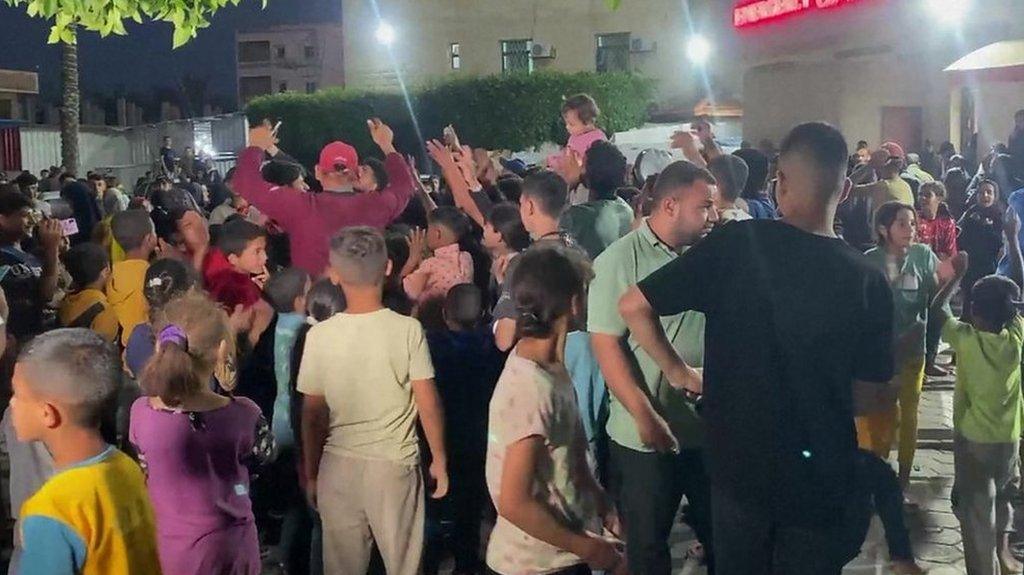Bowen: Netanyahu knows Hamas survival amounts to his own defeat
- Published
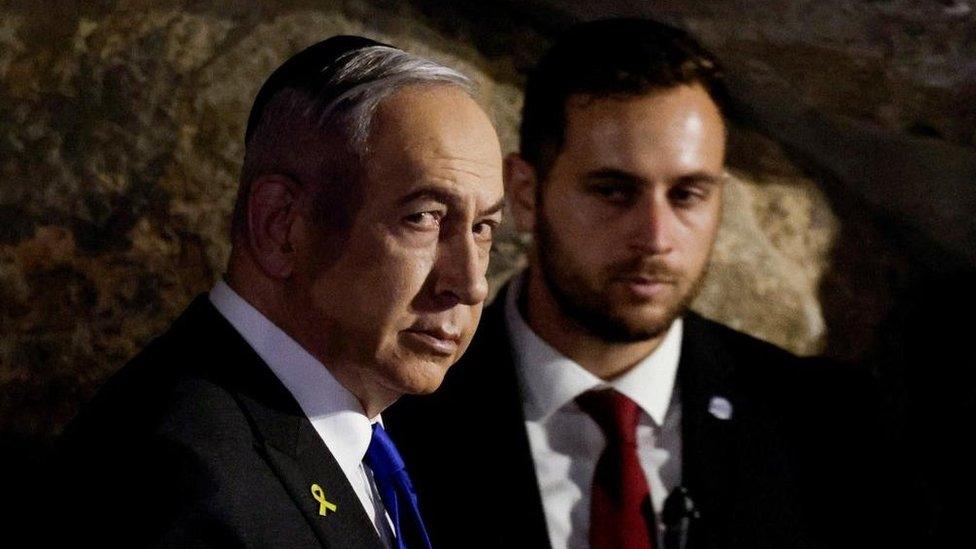
After months of on-off hard talking between belligerents and mediators, the time has come for hard decisions.
Hamas has agreed to a draft ceasefire deal, which is "far from meeting Israel's demands", according to Israel's Prime Minister Benjamin Netanyahu. He has still felt it necessary to dispatch a delegation to discuss it.
Israel agreed to a ceasefire offer at the end of April. The US Secretary of State Antony Blinken said it was "exceptionally generous".
A big challenge for the negotiators in Cairo is closing the gap between Israel's version and the one accepted by Hamas. Diplomatic sources in Qatar, which is part of the mediation effort with Egypt and the United States, told me "it is broadly the same as Israel's proposal. Just minor wordings changed and details".
Israel may decide that the differences are not minor. One major sticking point has been that Hamas wants a ceasefire to be permanent, not temporary, and to be followed by an Israeli withdrawal from Gaza.
If the US delegation, led by the CIA chief William Burns, believes the gaps can be bridged, Mr Netanyahu can expect pressure from Washington to agree.
Until Monday evening, Israel's working assumption was that Hamas would not accept a ceasefire proposal. Benjamin Netanyahu and his government, like most foreign observers, were blindsided when Hamas announced its decision.
There are two ways of looking at the Hamas gambit. It can be seen as a desperate move by an organisation badly bloodied and almost broken by Israel's long offensive.
Or it was an adroit political move, which has turned the pressure back on Mr Netanyahu. That explanation is more credible, as Israel's plans and assumptions were upended by the offer.
We know that Israel was basing its moves in the next phase of the war on an assumption that Yahya Sinwar, the Hamas chief in Gaza who has been in hiding since 7 October, would never accept a ceasefire.
Israel used the absence of a ceasefire offer from Hamas as an explanation for its decision to launch a military operation in Gaza. The US is very clear that it is against any ground operation in Rafah that could threaten the lives of more Palestinian civilians.
As Israel warned around 100,000 Palestinians to leave their homes at first light on Monday, its defence minister Yoav Gallant told his US counterpart that there was no alternative to a Rafah assault.
That, he said, was because Hamas had rejected every proposal for a temporary ceasefire and a release of hostages. Only a few hours later, Hamas made its announcement, calling Israel's bluff.
Mr Netanyahu is in a political bind. His governing style over more than 16 years as Israel's leader has been characterised by a habit of putting off difficult choices.
But now he is under severe pressure, from all sides, and however tempting it might be to play for time, this is a moment for decisions.
The most intense pressure comes from two ultranationalist Jewish extremists in his cabinet - finance minister Bezalel Smotrich and Itamar Ben Gvir, minister for national security.
Mr Netanyahu needs their votes to keep his coalition in power. They want Israel to occupy Rafah and have threatened to topple the government if he does not make it happen. For them, a ceasefire equals surrender.
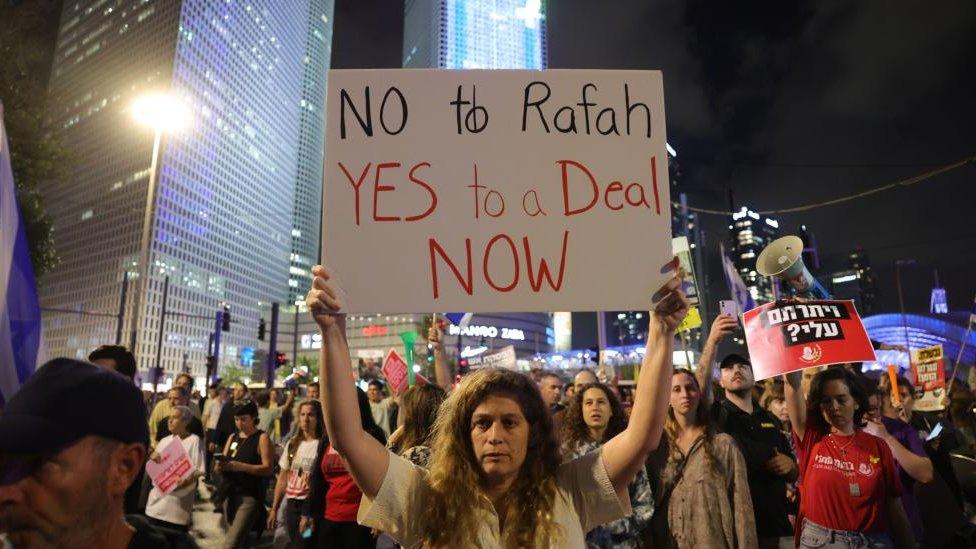
News Hamas had accepted a proposal sparked protests demanding Israeli leaders do the same
At the same time, families and supporters of Israeli hostages have been demonstrating, blocking major roads to demand that Israel makes a deal to get them back home.
The hostage families have support in the war cabinet from Benny Gantz and Gabi Eisenkot, two opposition leaders who joined the cabinet after the 7 October attacks. They might leave the government if, in the absence of a ceasefire, the hostages stay put.
The Americans also want a deal. President Biden's support for Israel, even as its army killed huge numbers of Palestinian civilians, is costing him political support.
If Mr Biden decides that there is an acceptable version of a ceasefire to be had, he will push Benjamin Netanyahu to support it.
The Israeli leader would have to choose between his government's survival and the vital support the US president has given him in recent months.
It is widely believed in Israel that Mr Netanyahu wants to prolong the war to put off the moment of reckoning for his own part in the mistakes that gave Hamas its opportunity on 7 October to kill around 1200 people, mostly Israelis and take 240 hostages into Gaza.
A ceasefire would also mean that Benjamin Netanyahu has not achieved "total victory" over Hamas - one of his two main war aims. The other is freeing the hostages, which he has not achieved either.
This war is showing, once again, how hard it is for powerful countries like Israel to defeat much weaker organisations like Hamas. For Hamas, survival means victory, and Benjamin Netanyahu knows that, for him, would be a defeat.
- Published7 May 2024
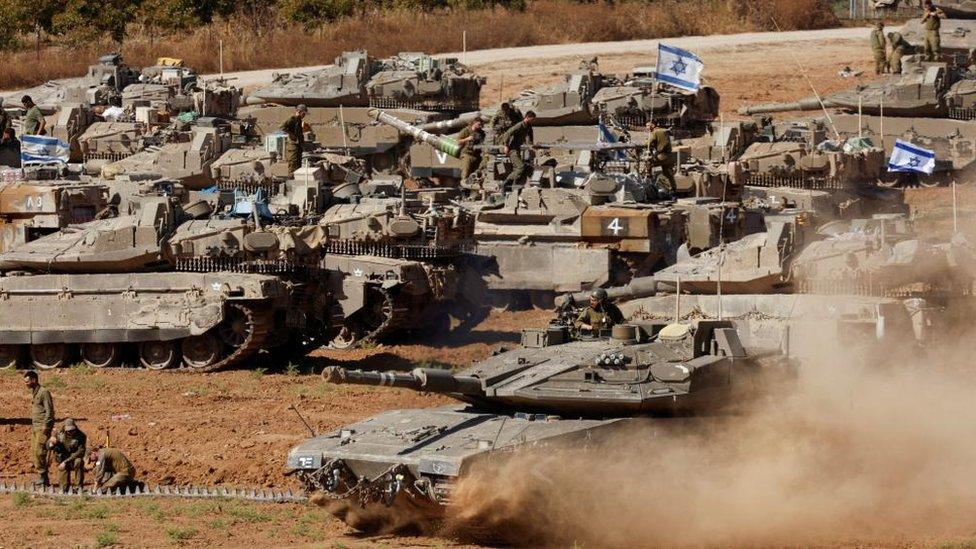
- Published6 May 2024
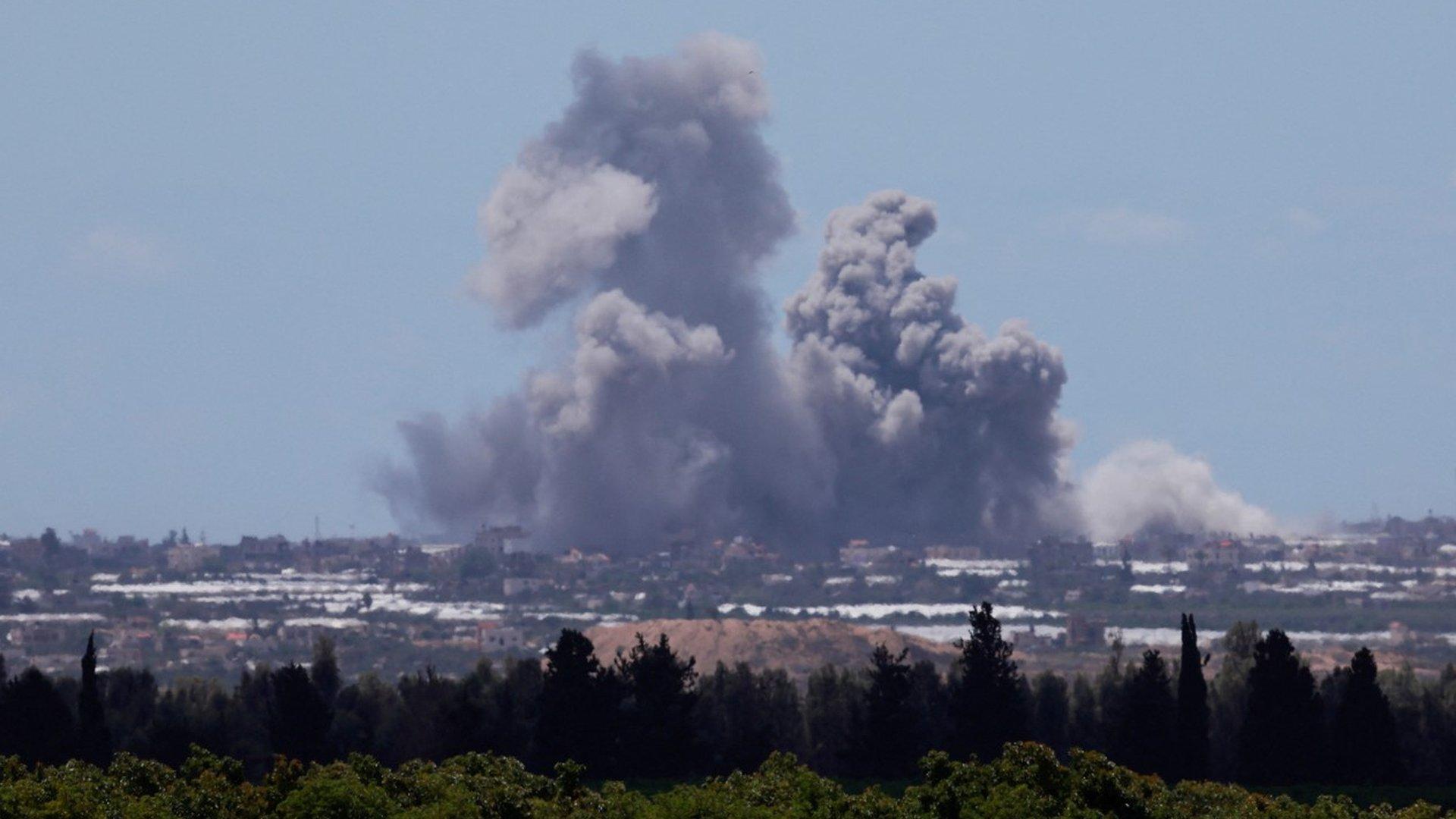
- Published6 May 2024
